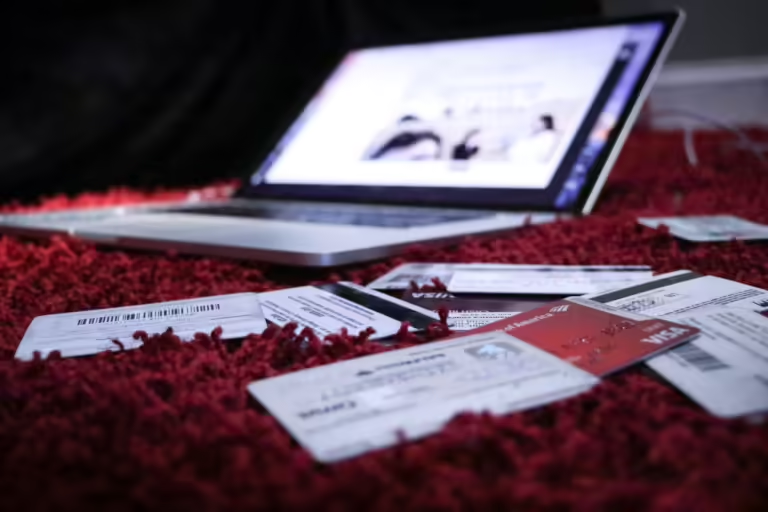Financial emergencies can strike at any time, whether it’s an unexpected medical bill, car repair, job loss, or home emergency. When these situations arise, it can be easy to feel overwhelmed, especially if you’re focused on saving for a goal, paying off debt, or sticking to a financial plan. However, with the right approach and preparation, you can handle financial emergencies without completely derailing your long-term financial goals. Here’s how to manage unexpected expenses and stay on track.
1. Build and Maintain an Emergency Fund
The most important step in preparing for financial emergencies is having an emergency fund in place. This fund is a dedicated savings account set aside specifically for unplanned expenses, like car repairs, medical emergencies, or job loss. Having this financial buffer allows you to cover unexpected costs without relying on credit cards, loans, or dipping into long-term savings.
How to Build an Emergency Fund:
- Start small: Aim for an initial goal of $500 to $1,000. While this won’t cover every emergency, it will help with smaller expenses.
- Increase over time: Ideally, your emergency fund should cover three to six months of living expenses. If you lose your job or face a significant financial setback, this will give you breathing room to recover.
- Automate savings: Set up automatic transfers to your emergency fund from your checking account to make saving consistent and effortless.
Once your emergency fund is established, make sure to replenish it after each financial emergency. This will ensure you’re prepared for the next unexpected expense.
2. Prioritize Expenses
When a financial emergency hits, it’s important to prioritize your expenses to determine which payments are essential and which can be postponed or reduced. Focusing on the most critical areas first will prevent your financial situation from spiraling out of control.
Essentials to Prioritize:
- Housing: Keep up with your rent or mortgage payments to avoid foreclosure or eviction.
- Utilities: Ensure that you pay for electricity, water, and heating, as these are essential for day-to-day living.
- Transportation: If you need your car to get to work, prioritize any necessary repairs to maintain reliable transportation.
- Groceries: Stick to a basic grocery budget to make sure you and your family have enough food.
After handling the most critical expenses, review your remaining bills to see if there are areas where you can cut back or delay payments temporarily.
3. Cut Non-Essential Spending
In a financial emergency, it’s crucial to identify areas of your budget where you can reduce or eliminate non-essential spending. This allows you to redirect funds to cover emergency costs without affecting your essential bills and savings goals.
How to Cut Non-Essential Spending:
- Pause subscriptions: Cancel or pause streaming services, gym memberships, and other non-essential subscriptions.
- Reduce dining out: Cut back on takeout or dining out and focus on cooking at home to save on food expenses.
- Postpone non-urgent purchases: Delay big purchases like electronics, clothing, or household items that aren’t immediately necessary.
- Scale back entertainment: Opt for free or low-cost entertainment options like local parks, libraries, or at-home movie nights.
By tightening your budget during the emergency, you can free up extra cash to handle the unexpected expense.
4. Negotiate Bills and Payment Plans
In some cases, you may be able to negotiate with creditors, service providers, or lenders to set up a payment plan or temporarily reduce your bills. Many companies, especially utility providers and medical offices, offer hardship programs or payment plans that allow you to manage your expenses without falling behind.
How to Negotiate Bills:
- Contact service providers: Call your utility company, internet provider, or insurance company to explain your situation and ask if they offer temporary payment deferrals or lower payment options.
- Work with creditors: If you’re struggling with credit card debt, contact your credit card issuer to see if they can lower your interest rate or offer a more manageable repayment plan.
- Request a payment plan: For large medical bills or unexpected healthcare costs, many hospitals and doctors’ offices will offer payment plans that allow you to pay in installments over time, often with little or no interest.
By negotiating payment terms, you can spread out your financial obligations and avoid missing payments, which can negatively impact your credit score.
5. Use Your Emergency Fund Wisely
When an emergency arises, your emergency fund should be your first line of defense. However, it’s important to use these funds wisely and only for true emergencies, not for impulse purchases or non-urgent expenses. Consider the emergency fund as a financial safety net for serious situations.
When to Use Your Emergency Fund:
- Medical emergencies: Unexpected medical bills, procedures, or prescriptions.
- Car repairs: Essential repairs to keep your vehicle safe and functional.
- Job loss: Covering basic living expenses while you look for new employment.
- Home repairs: Urgent repairs, such as a broken furnace or leaking roof, that can’t be postponed.
By using your emergency fund carefully, you can avoid borrowing money and stay on track with your long-term financial goals.
6. Avoid High-Interest Debt
During a financial emergency, it can be tempting to turn to credit cards or payday loans for quick cash. However, high-interest debt can quickly spiral out of control and make your financial situation worse in the long run. Interest rates on credit cards and payday loans are often much higher than other forms of borrowing, leading to larger balances and higher monthly payments.
How to Avoid High-Interest Debt:
- Use your emergency fund first: Rely on your savings before turning to credit.
- Explore low-interest alternatives: If you need to borrow money, consider options like a personal loan from your bank or credit union, which may offer lower interest rates than credit cards.
- Avoid payday loans: Payday loans often come with extremely high interest rates and fees that can trap you in a cycle of debt. Try to avoid them at all costs.
If you do use a credit card during an emergency, create a plan to pay off the balance as quickly as possible to minimize interest charges.
7. Look for Additional Sources of Income
If your emergency is long-term, such as a job loss or significant medical expenses, consider looking for additional ways to bring in income while you recover. Even temporary sources of income can help you stay afloat during tough times.
Ideas for Generating Extra Income:
- Freelance work: Offer your skills as a freelancer in areas like writing, graphic design, tutoring, or consulting.
- Gig economy jobs: Take on flexible side jobs such as driving for Uber or Lyft, delivering food for DoorDash or Uber Eats, or completing tasks on platforms like TaskRabbit.
- Sell unwanted items: Clean out your home and sell unwanted clothes, electronics, or furniture on platforms like eBay, Facebook Marketplace, or Poshmark.
By finding temporary or side income, you can cover emergency expenses without significantly derailing your financial plans.
8. Reassess and Adjust Your Budget
Once the immediate emergency has passed, take time to reassess your financial situation and adjust your budget as needed. Depending on the severity of the emergency, you may need to temporarily shift your priorities to rebuild your emergency fund, pay off debt, or focus on other financial goals.
How to Rebuild After an Emergency:
- Rebuild your emergency fund: If you used some or all of your emergency savings, make rebuilding this fund a priority to prepare for future emergencies.
- Review your budget: Look for areas where you can cut back on discretionary spending or reallocate funds to meet your new financial needs.
- Focus on debt repayment: If you incurred debt during the emergency, create a plan to pay it off as quickly as possible.
By reassessing your finances and making adjustments, you can regain control of your budget and get back on track toward your financial goals.
9. Plan for Future Emergencies
Financial emergencies are often unpredictable, but by planning ahead, you can be better prepared for the next one. In addition to maintaining your emergency fund, consider other forms of insurance and financial protection to safeguard against unexpected events.
Ways to Prepare for Future Emergencies:
- Insurance: Ensure you have adequate health, home, auto, and life insurance coverage to reduce the financial impact of emergencies.
- Create a financial safety net: In addition to your emergency fund, consider setting up a sinking fund for large expenses, such as home maintenance or medical bills.
- Regularly review your financial plan: Revisit your budget, savings, and financial goals periodically to ensure you’re prepared for any changes in your circumstances.
Final Thoughts
Handling financial emergencies is never easy, but with the right preparation and strategies, you can navigate them without derailing your financial plans. By building and maintaining an emergency fund, cutting non-essential spending, and prioritizing your expenses, you’ll be better equipped to manage unexpected costs. The key is to stay calm, assess your options, and take action quickly to minimize the long-term impact on your financial health.





 GOOGL
GOOGL  META
META
Leave a Comment